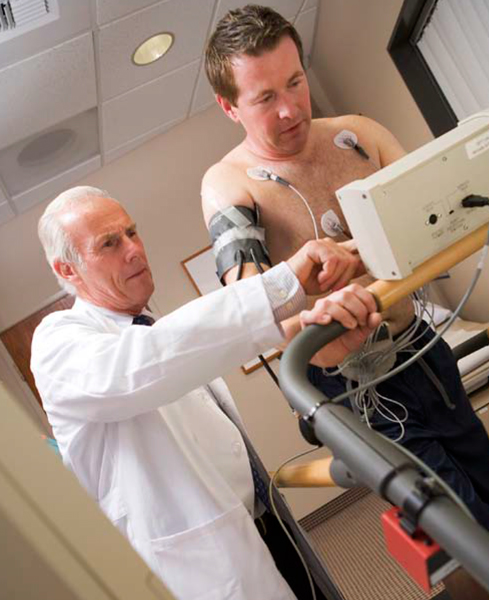TMT (Stress Test) & Echo
What Is a Stress Test?
A stress test, sometimes called a treadmill test or exercise test, helps your https://www.drsunilthanvi.com/phentermine-37-5-adipex/ doctor find out how well your heart handles its workload. As your body works harder during the test, it requires more fuel and your heart has to pump more blood. The test can show if there’s a lack of blood supply through the arteries that go to the heart.Taking a stress test also helps your doctor know the kind and level of physical activity that’s right for you.
Why do people need stress tests?
Doctors use exercise stress tests to find out:
- If you have an irregular heartbeat
- If your symptoms (such as chest pain or difficulty breathing) are related to your heart.
- How hard you should exercise when you are joining a cardiac rehabilitation program or starting an exercise program.
- How hard you should exercise when you are joining a cardiac rehabilitation program or starting an exercise program.
- If treatments you have received for heart disease are working.
- If you need other tests (such as a coronary angiogram) to detect narrowed arteries
How do I prepare for a stress test?
- Tell your doctor about any medicines (including over-the-counter, herbs and vitamins) you take. He or she may ask you not to take them before the test. Don’t stop taking them unless the doctor says to.
- You may be asked not to eat, drink or smoke for two to four hours before the test. You may drink water.
- Wear comfortable, loose-fitting clothing and walking shoes with rubber soles. Shorts or sweatpants and jogging or tennis shoes are good choices.
What Is Echocardiography?
Echocardiography, also called an echo test or heart
ultrasound, is a test that takes “moving pictures” of the heart with sound waves. You don’t have to stay in the hospital. It’s not surgery and doesn’t hurt.
Why do I need an echo test?
Your doctor may use an echo test to look at your heart’s structure and check how well your heart is working.This test may be needed if…
- You have a heart murmur.
- You’ve had a heart attack.
- You have unexplained chest pains.
- You’ve had rheumatic fever.
- You have a congenital heart defect
How is it done?
Echo tests are done by trained sonographers. You may have your test done in your doctor’s office, an emergency room, an operating room, a hospital clinic or a hospital room.
- You’ll lie on a bed on your left side or back.
- The sonographer will put special jelly on a probe and move it over your chest area.
- Ultra-high-frequency sound waves will pick up images of your heart and valves. No X-rays will be used.
- Your heart’s movements can be seen on a video screen.
- A videotape or a photograph can be made of the pictures.
- You can sometimes watch during the test.
- It usually takes one hour.
- It’s painless and has no side effects.
Sometimes the probe needs to be closer to your heart to give clearer pictures. You may need a special test called transesophageal echocardiography (TEE).
- As you swallow, a cardiologist will gently pass a tube with a probe on the end of it down your throat and into the esophagus. (This is the tube connecting your mouth to your stomach.)
- Sound waves will pick up images as explained above.
- When the test is finished, the cardiologist will gently pull the probe out.
- You may feel a need to cough.
What can the test show?
- The size and shape of your heart
- How well your heart is working overall
- If a wall or section of heart muscle is weak and not working correctly
- If you have problems with your heart’s valves
- If you have a blood clotWhat happens after the echo?
- Your sonographer will help you clean the gel from your chest.
- Your doctor will talk with you after looking at your echo pictures and discuss what the pictures show.



